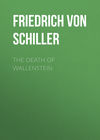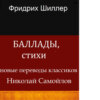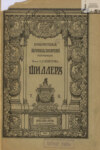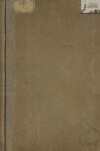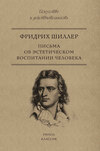Loe raamatut: «The Death of Wallenstein»
DRAMATIS PERSONAE
WALLENSTEIN, Duke of Friedland, Generalissimo of the Imperial Forces in the Thirty Years' War.
DUCHESS OF FREIDLAND, Wife of Wallenstein.
THEKLA, her Daughter, Princess of Friedland.
THE COUNTESS TERZKY, Sister of the Duchess.
LADY NEUBRUNN.
OCTAVIO PICCOLOMINI, Lieutenant-General.
MAX. PICCOLOMINI, his Son, Colonel of a Regiment of Cuirassiers.
COUNT TERZKY, the Commander of several Regiments, and Brother-in-law of Wallenstein.
ILLO, Field-Marshal, Wallenstein's Confidant.
ISOLANI, General of the Croats.
BUTLER, an Irishman, Commander of a Regiment of Dragoons.
GORDON, Governor of Egra.
MAJOR GERALDIN.
CAPTAIN DEVEREUX.
CAPTAIN MACDONALD.
AN ADJUTANT.
NEUMANN, Captain of Cavalry, Aide-de-Camp to TERZKY.
COLONEL WRANGEL, Envoy from the Swedes.
ROSENBURG, Master of Horse.
SWEDISH CAPTAIN.
SENI.
BURGOMASTER of Egra.
ANSPESSADE of the Cuirassiers.
GROOM OF THE CHAMBER. | Belonging
A PAGE. | to the Duke.
Cuirassiers, Dragoons, and Servants.
ACT I
SCENE I
A room fitted up for astrological labors, and provided with celestial charts, with globes, telescopes, quadrants, and other mathematical instruments. Seven colossal figures, representing the planets, each with a transparent star of different color on its head, stand in a semicircle in the background, so that Mars and Saturn are nearest the eye. The remainder of the scene and its disposition is given in the fourth scene of the second act. There must be a curtain over the figures, which may be dropped and conceal them on occasions.
[In the fifth scene of this act it must be dropped; but in the seventh scene it must be again drawn up wholly or in part.]
WALLENSTEIN at a black table, on which, a speculum astrologicum is described with chalk. SENI is taking observations through a window.
WALLENSTEIN
All well – and now let it be ended, Seni. Come,
The dawn commences, and Mars rules the hour;
We must give o'er the operation. Come,
We know enough.
SENI
Your highness must permit me
Just to contemplate Venus. She is now rising
Like as a sun so shines she in the east.
WALLENSTEIN
She is at present in her perigee,
And now shoots down her strongest influences.
[Contemplating the figure on the table.
Auspicious aspect! fateful in conjunction,
At length the mighty three corradiate;
And the two stars of blessing, Jupiter
And Venus, take between them the malignant
Slyly-malicious Mars, and thus compel
Into my service that old mischief-founder:
For long he viewed me hostilely, and ever
With beam oblique, or perpendicular,
Now in the Quartile, now in the Secundan,
Shot his red lightnings at my stars, disturbing
Their blessed influences and sweet aspects:
Now they have conquered the old enemy,
And bring him in the heavens a prisoner to me.
SENI (who has come down from the window)
And in a corner-house, your highness – think of that!
That makes each influence of double strength.
WALLENSTEIN
And sun and moon, too, in the Sextile aspect,
The soft light with the vehement – so I love it.
Sol is the heart, Luna the head of heaven,
Bold be the plan, fiery the execution.
SENI
And both the mighty Lumina by no
Maleficus affronted. Lo! Saturnus,
Innocuous, powerless, in cadente Domo.
WALLENSTEIN
The empire of Saturnus is gone by;
Lord of the secret birth of things is he;
Within the lap of earth, and in the depths
Of the imagination dominates;
And his are all things that eschew the light.
The time is o'er of brooding and contrivance,
For Jupiter, the lustrous, lordeth now,
And the dark work, complete of preparation,
He draws by force into the realm of light.
Now must we hasten on to action, ere
The scheme, and most auspicious positure
Parts o'er my head, and takes once more its flight,
For the heaven's journey still, and adjourn not.
[There are knocks at the door.
There's some one knocking there. See who it is.
TERZKY (from without)
Open, and let me in.
WALLENSTEIN
Ay – 'tis Terzky.
What is there of such urgence? We are busy.
TERZKY (from without)
Lay all aside at present, I entreat you;
It suffers no delaying.
WALLENSTEIN
Open, Seni!
[While SENI opens the door for TERZKY, WALLENSTEIN draws the curtain over the figures
SCENE II
WALLENSTEIN, COUNT TERZKY.
TERZKY (enters)
Hast thou already heard it? He is taken.
Gallas has given him up to the emperor.
[SENI draws off the black table, and exit.
WALLENSTEIN (to TERZKY)
Who has been taken? Who is given up?
TERZKY
The man who knows our secrets, who knows every
Negotiation with the Swede and Saxon,
Through whose hands all and everything has passed —
WALLENSTEIN (drawing back)
Nay, not Sesina? Say, no! I entreat thee.
TERZKY
All on his road for Regensburg to the Swede
He was plunged down upon by Gallas' agent,
Who had been long in ambush, lurking for him.
There must have been found on him my whole packet
To Thur, to Kinsky, to Oxenstiern, to Arnheim:
All this is in their hands; they have now an insight
Into the whole – our measures and our motives.
SCENE III
To them enters ILLO.
ILLO (to TERZKY)
Has he heard it?
TERZKY
He has heard it.
ILLO (to WALLENSTEIN)
Thinkest thou still
To make thy peace with the emperor, to regain
His confidence? E'en were it now thy wish
To abandon all thy plans, yet still they know
What thou hast wished: then forwards thou must press;
Retreat is now no longer in thy power.
TERZKY
They have documents against us, and in hands,
Which show beyond all power of contradiction —
WALLENSTEIN
Of my handwriting – no iota. Thee
I punish or thy lies.
ILLO
And thou believest,
That what this man, and what thy sister's husband,
Did in thy name, will not stand on thy reckoning?
His word must pass for thy word with the Swede,
And not with those that hate thee at Vienna?
TERZKY
In writing thou gavest nothing; but bethink thee,
How far thou venturedst by word of mouth
With this Sesina! And will he be silent?
If he can save himself by yielding up
Thy secret purposes, will he retain them?
ILLO
Thyself dost not conceive it possible;
And since they now have evidence authentic
How far thou hast already gone, speak! tell us,
What art thou waiting for? Thou canst no longer
Keep thy command; and beyond hope of rescue
Thou'rt lost if thou resign'st it.
WALLENSTEIN
In the army
Lies my security. The army will not
Abandon me. Whatever they may know,
The power is mine, and they must gulp it down
And if I give them caution for my fealty,
They must be satisfied, at least appear so.
ILLO
The army, duke, is thine now; for this moment
'Tis thine: but think with terror on the slow,
The quiet power of time. From open violence
The attachment of thy soldiery secures thee
To-day, to-morrow: but grant'st thou them a respite,
Unheard, unseen, they'll undermine that love
On which thou now dost feel so firm a footing,
With wily theft will draw away from thee
One after the other —
WALLENSTEIN
'Tis a cursed accident!
Oh! I will call it a most blessed one,
If it work on thee as it ought to do,
Hurry thee on to action – to decision.
The Swedish general?
WALLENSTEIN
He's arrived! Know'st
What his commission is —
ILLO
To thee alone
Will he intrust the purpose of his coming.
WALLENSTEIN
A cursed, cursed accident! Yes, yes,
Sesina knows too much, and won't be silent.
TERZKY
He's a Bohemian fugitive and rebel,
His neck is forfeit. Can he save himself
At thy cost, think you he will scruple it?
And if they put him to the torture, will he,
Will he, that dastardling, have strength enough —
WALLENSTEIN (lost in thought)
Their confidence is lost, irreparably!
And I may act which way I will, I shall
Be and remain forever in their thought
A traitor to my country. How sincerely
Soever I return back to my duty,
It will no longer help me —
ILLO
Ruin thee,
That it will do! Not thy fidelity,
Thy weakness will be deemed the sole occasion —
WALLENSTEIN (pacing up and down in extreme agitation)
What! I must realize it now in earnest,
Because I toyed too freely with the thought!
Accursed he who dallies with a devil!
And must I – I must realize it now —
Now, while I have the power, it must take place!
ILLO
Now – now – ere they can ward and parry it!
WALLENSTEIN (looking at the paper of Signatures)
I have the generals' word – a written promise!
Max. Piccolomini stands not here – how's that?
TERZRY
It was – he fancied —
ILLO
Mere self-willedness.
There needed no such thing 'twixt him and you.
WALLENSTEIN
He is quite right; there needed no such thing.
The regiments, too, deny to march for Flanders
Have sent me in a paper of remonstrance,
And openly resist the imperial orders.
The first step to revolt's already taken.
ILLO
Believe me, thou wilt find it far more easy
To lead them over to the enemy
Than to the Spaniard.
WALLENSTEIN
I will hear, however,
What the Swede has to say to me.
ILLO (eagerly to TERZKY)
Go, call him,
He stands without the door in waiting.
WALLENSTEIN
Stay!
Stay but a little. It hath taken me
All by surprise; it came too quick upon me;
'Tis wholly novel that an accident,
With its dark lordship, and blind agency,
Should force me on with it.
ILLO
First hear him only,
And then weigh it.
[Exeunt TERZKY and ILLO.
SCENE IV
WALLENSTEIN (in soliloquy)
Is it possible?
Is't so? I can no longer what I would?
No longer draw back at my liking? I
Must do the deed, because I thought of it?
And fed this heart here with a dream?
Because I did not scowl temptation from my presence,
Dallied with thoughts of possible fulfilment,
Commenced no movement, left all time uncertain,
And only kept the road, the access open?
By the great God of Heaven! it was not
My serious meaning, it was ne'er resolved.
I but amused myself with thinking of it.
The free-will tempted me, the power to do
Or not to do it. Was it criminal
To make the fancy minister to hope,
To fill the air with pretty toys of air,
And clutch fantastic sceptres moving toward me?
Was not the will kept free? Beheld I not
The road of duty close beside me – but
One little step, and once more I was in it!
Where am I? Whither have I been transported?
No road, no track behind me, but a wall,
Impenetrable, insurmountable,
Rises obedient to the spells I muttered
And meant not – my own doings tower behind me.
[Pauses and remains in deep thought.
A punishable man I seem, the guilt,
Try what I will, I cannot roll off from me;
The equivocal demeanor of my life
Bears witness on my prosecutor's party.
And even my purest acts from purest motives
Suspicion poisons with malicious gloss.
Were I that thing for which I pass, that traitor,
A goodly outside I had sure reserved,
Had drawn the coverings thick and double round me,
Been calm and chary of my utterance;
But being conscious of the innocence
Of my intent, my uncorrupted will,
I gave way to my humors, to my passion:
Bold were my words, because my deeds were not.
Now every planless measure, chance event,
The threat of rage, the vaunt of joy and triumph,
And all the May-games of a heart overflowing,
Will they connect, and weave them all together
Into one web of treason; all will be plan,
My eye ne'er absent from the far-off mark,
Step tracing step, each step a politic progress;
And out of all they'll fabricate a charge
So specious, that I must myself stand dumb.
I am caught in my own net, and only force,
Naught but a sudden rent can liberate me.
[Pauses again.
How else! since that the heart's unbiased instinct
Impelled me to the daring deed, which now
Necessity, self-preservation, orders.
Stern is the on-look of necessity,
Not without shudder may a human hand
Grasp the mysterious urn of destiny.
My deed was mine, remaining in my bosom;
Once suffered to escape from its safe corner
Within the heart, its nursery and birthplace,
Sent forth into the foreign, it belongs
Forever to those sly malicious powers
Whom never art of man conciliated.
[Paces in agitation through the chamber, then pauses, and, after the pause, breaks out again into audible soliloquy.
What is thy enterprise? thy aim? thy object?
Hast honestly confessed it to thyself?
Power seated on a quiet throne thou'dst shake,
Power on an ancient, consecrated throne,
Strong in possession, founded in all custom;
Power by a thousand tough and stringy roots
Fixed to the people's pious nursery faith.
This, this will be no strife of strength with strength.
That feared I not. I brave each combatant,
Whom I can look on, fixing eye to eye,
Who, full himself of courage, kindles courage
In me too. 'Tis a foe invisible
The which I fear – a fearful enemy,
Which in the human heart opposes me,
By its coward fear alone made fearful to me.
Not that, which full of life, instinct with power,
Makes known its present being; that is not
The true, the perilously formidable.
O no! it is the common, the quite common,
The thing of an eternal yesterday.
Whatever was, and evermore returns,
Sterling to-morrow, for to-day 'twas sterling!
For of the wholly common is man made,
And custom is his nurse! Woe then to them
Who lay irreverent hands upon his old
House furniture, the dear inheritance
From his forefathers! For time consecrates;
And what is gray with age becomes religion.
Be in possession, and thou hast the right,
And sacred will the many guard it for thee!
[To the PAGE, – who here enters.
The Swedish officer? Well, let him enter.
[The PAGE exit, WALLENSTEIN fixes his eye in deep thought on the door.
Yet, it is pure – as yet! – the crime has come
Not o'er this threshold yet – so slender is
The boundary that divideth life's two paths.
SCENE V
WALLENSTEIN and WRANGEL.
WALLENSTEIN (after having fixed a searching look on him)
Your name is Wrangel?
WRANGEL
Gustave Wrangel, General
Of the Sudermanian Blues.
WALLENSTEIN
It was a Wrangel
Who injured me materially at Stralsund,
And by his brave resistance was the cause
Of the opposition which that seaport made.
WRANGEL
It was the doing of the element
With which you fought, my lord! and not my merit,
The Baltic Neptune did assert his freedom:
The sea and land, it seemed were not to serve
One and the same.
WALLENSTEIN
You plucked the admiral's hat from off my head.
WRANGEL
I come to place a diadem thereon.
WALLENSTEIN (makes the motion for him to take a seat, and seats himself)
And where are your credentials
Come you provided with full powers, sir general?
WRANGEL
There are so many scruples yet to solve —
WALLENSTEIN (having read the credentials)
An able letter! Ay – he is a prudent,
Intelligent master whom you serve, sir general!
The chancellor writes me that he but fulfils
His late departed sovereign's own idea
In helping me to the Bohemian crown.
WRANGEL
He says the truth. Our great king, now in heaven,
Did ever deem most highly of your grace's
Pre-eminent sense and military genius;
And always the commanding intellect,
He said, should have command, and be the king.
WALLENSTEIN
Yes, he might say it safely. General Wrangel,
[Taking his hand affectionately.
Come, fair and open. Trust me, I was always
A Swede at heart. Eh! that did you experience
Both in Silesia and at Nuremberg;
I had you often in my power, and let you
Always slip out by some back door or other.
'Tis this for which the court can ne'er forgive me,
Which drives me to this present step: and since
Our interests so run in one direction,
E'en let us have a thorough confidence
Each in the other.
WRANGEL
Confidence will come
Has each but only first security.
WALLENSTEIN
The chancellor still, I see, does not quite trust me;
And, I confess – the game does not lie wholly
To my advantage. Without doubt he thinks,
If I can play false with the emperor,
Who is my sovereign, I can do the like
With the enemy, and that the one, too, were
Sooner to be forgiven me than the other.
Is not this your opinion, too, sir general?
WRANGEL
I have here a duty merely, no opinion.
WALLENSTEIN
The emperor hath urged me to the uttermost
I can no longer honorably serve him.
For my security, in self-defence,
I take this hard step, which my conscience blames.
WRANGEL
That I believe. So far would no one go
Who was not forced to it.
[After a pause.
What may have impelled
Your princely highness in this wise to act
Toward your sovereign lord and emperor,
Beseems not us to expound or criticise.
The Swede is fighting for his good old cause,
With his good sword and conscience. This concurrence,
This opportunity is in our favor,
And all advantages in war are lawful.
We take what offers without questioning;
And if all have its due and just proportions —
WALLENSTEIN
Of what then are ye doubting? Of my will?
Or of my power? I pledged me to the chancellor,
Would he trust me with sixteen thousand men,
That I would instantly go over to them
With eighteen thousand of the emperor's troops.
WRANGEL
Your grace is known to be a mighty war-chief,
To be a second Attila and Pyrrhus.
'Tis talked of still with fresh astonishment,
How some years past, beyond all human faith,
You called an army forth like a creation:
But yet —
WALLENSTEIN
But yet?
WRANGEL
But still the chancellor thinks
It might yet be an easier thing from nothing
To call forth sixty thousand men of battle,
Than to persuade one-sixtieth part of them —
WALLENSTEIN
What now? Out with it, friend?
WRANGEL
To break their oaths.
WALLENSTEIN
And he thinks so? He judges like a Swede,
And like a Protestant. You Lutherans
Fight for your Bible. You are interested
About the cause; and with your hearts you follow
Your banners. Among you whoe'er deserts
To the enemy hath broken covenant
With two lords at one time. We've no such fancies.
WRANGEL
Great God in heaven! Have then the people here
No house and home, no fireside, no altar?
WALLENSTEIN
I will explain that to you, how it stands:
The Austrian has a country, ay, and loves it,
And has good cause to love it – but this army
That calls itself the imperial, this that houses
Here in Bohemia, this has none – no country;
This is an outcast of all foreign lands,
Unclaimed by town or tribe, to whom belongs
Nothing except the universal sun.
And this Bohemian land for which we fight
Loves not the master whom the chance of war,
Not its own choice or will, hath given to it.
Men murmur at the oppression of their conscience,
And power hath only awed but not appeased them.
A glowing and avenging memory lives
Of cruel deeds committed on these plains;
How can the son forget that here his father
Was hunted by the bloodhound to the mass?
A people thus oppressed must still be feared,
Whether they suffer or avenge their wrongs.
WRANGEL
But then the nobles and the officers?
Such a desertion, such a felony,
It is without example, my lord duke,
In the world's history.
WALLENSTEIN
They are all mine —
Mine unconditionally – mine on all terms.
Not me, your own eyes you must trust.
[He gives him the paper containing the written oath. WRANGEL reads
it through, and, having read it, lays it on the table, – remaining
silent.
So then;
Now comprehend you?
WRANGEL
Comprehend who can!
My lord duke, I will let the mask drop – yes!
I've full powers for a final settlement.
The Rhinegrave stands but four days' march from here
With fifteen thousand men, and only waits
For orders to proceed and join your army.
These orders I give out immediately
We're compromised.
WALLENSTEIN
What asks the chancellor?
WRANGEL (considerately)
Twelve regiments, every man a Swede – my head
The warranty – and all might prove at last
Only false play —
WALLENSTEIN (starting)
Sir Swede!
WRANGEL (calmly proceeding)
Am therefore forced
To insist thereon, that he do formally,
Irrevocably break with the emperor,
Else not a Swede is trusted to Duke Friedland.
WALLENSTEIN
Come, brief and open! What is the demand?
WRANGEL
That he forthwith disarm the Spanish regiments
Attached to the emperor, that he seize on Prague,
And to the Swedes give up that city, with
The strong pass Egra.
WALLENSTEIN
That is much indeed!
Prague! – Egra's granted – but – but Prague! 'Twon't do.
I give you every security
Which you may ask of me in common reason —
But Prague – Bohemia – these, sir general,
I can myself protect.
WRANGEL
We doubt it not.
But 'tis not the protection that is now
Our sole concern. We want security,
That we shall not expend our men and money
All to no purpose.
WALLENSTEIN
'Tis but reasonable.
WRANGEL
And till we are indemnified, so long
Stays Prague in pledge.
WALLENSTEIN
Then trust you us so little?
WRANGEL (rising)
The Swede, if he would treat well with the German,
Must keep a sharp lookout. We have been called
Over the Baltic, we have saved the empire
From ruin – with our best blood have we sealed
The liberty of faith and gospel truth.
But now already is the benefaction
No longer felt, the load alone is felt.
Ye look askance with evil eye upon us,
As foreigners, intruders in the empire,
And would fain send us with some paltry sum
Of money, home again to our old forests.
No, no! my lord duke! it never was
For Judas' pay, for chinking gold and silver,
That we did leave our king by the Great Stone.1 No, not for gold and silver have there bled
So many of our Swedish nobles – neither
Will we, with empty laurels for our payment,
Hoist sail for our own country. Citizens
Will we remain upon the soil, the which
Our monarch conquered for himself and died.
WALLENSTEIN
Help to keep down the common enemy,
And the fair border land must needs be yours.
WRANGEL
But when the common enemy lies vanquished,
Who knits together our new friendship then?
We know, Duke Friedland! though perhaps the Swede
Ought not to have known it, that you carry on
Secret negotiations with the Saxons.
Who is our warranty that we are not
The sacrifices in those articles
Which 'tis thought needful to conceal from us?
WALLENSTEIN (rises)
Think you of something better, Gustave Wrangel!
Of Prague no more.
WRANGEL
Here my commission ends.
WALLENSTEIN
Surrender up to you my capital!
Far liever would I force about, and step
Back to my emperor.
WRANGEL
If time yet permits —
WALLENSTEIN
That lies with me, even now, at any hour.
WRANGEL
Some days ago, perhaps. To-day, no longer;
No longer since Sesina's been a prisoner.
[WALLENSTEIN is struck, and silenced.
My lord duke, hear me – we believe that you
At present do mean honorably by us.
Since yesterday we're sure of that – and now
This paper warrants for the troops, there's nothing
Stands in the way of our full confidence.
Prague shall not part us. Hear! The chancellor
Contents himself with Alstadt; to your grace
He gives up Ratschin and the narrow side.
But Egra above all must open to us,
Ere we can think of any junction.
WALLENSTEIN
You,
You therefore must I trust, and not you me?
I will consider of your proposition.
WRANGEL
I must entreat that your consideration
Occupy not too long a time. Already
Has this negotiation, my lord duke!
Crept on into the second year. If nothing
Is settled this time, will the chancellor
Consider it as broken off forever?
WALLENSTEIN
Ye press me hard. A measure such as this
Ought to be thought of.
WRANGEL
Ay! but think of this too,
That sudden action only can procure it.
Success – think first of this, your highness.
[Exit WRANGEL.
